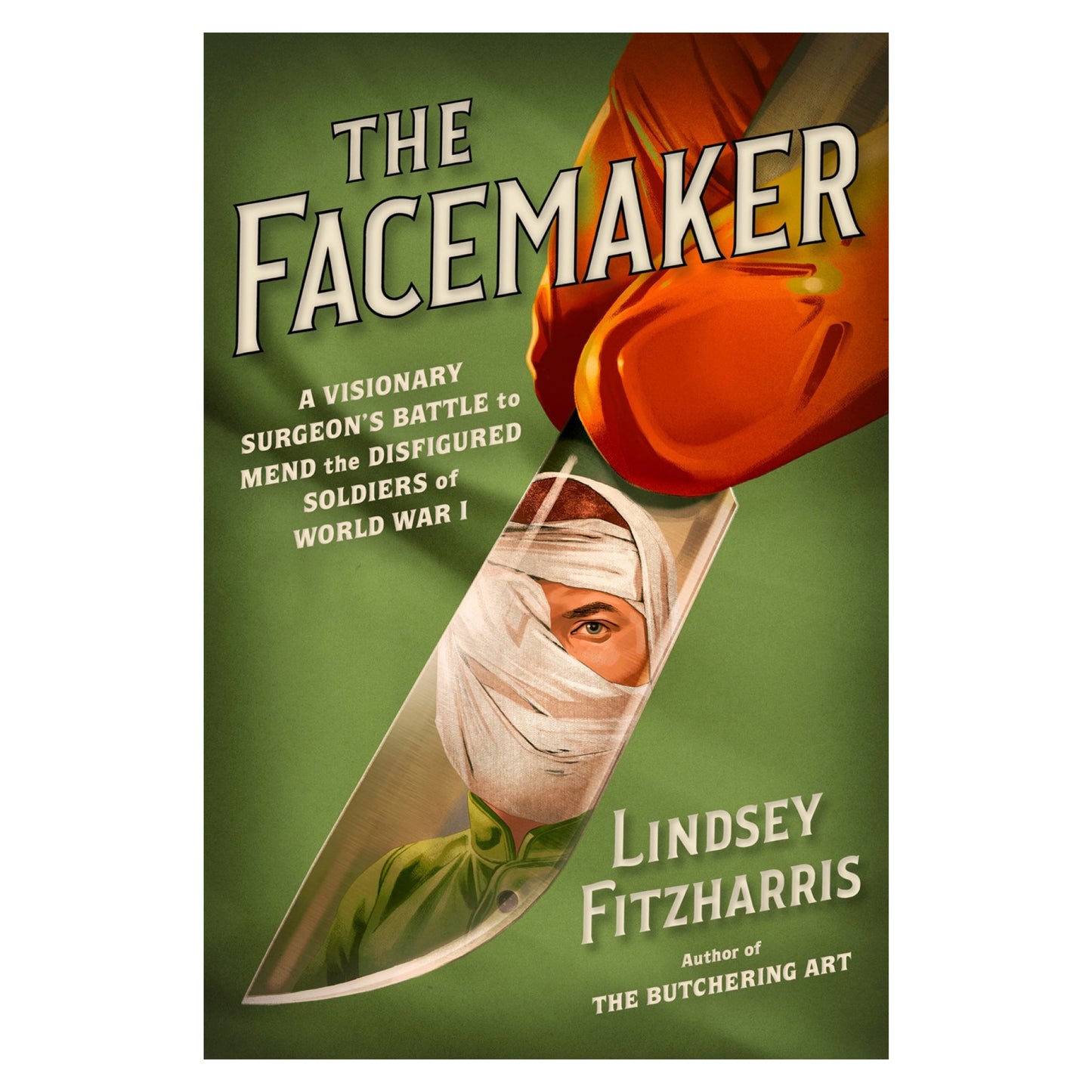The Facemaker
The Facemaker
A Visionary Surgeon's Battle to Mend the Disfigured Soldiers of World War I
by Lindsey Fitzharris
Hardcover
Couldn't load pickup availability
The author of The Butchering Art returns with a real-life wartime medical thriller.
Between 1914 and 1918, the First World War claimed the lives of millions of soldiers and left millions more wounded and disfigured. It was the worst conflict the world had ever seen, and its toxic legacy would determine the course of the twentieth century. Amid the brutality, however, some acted nobly and decently, striving to alleviate suffering even as the Allied and Central Powers continued to feed the war machine with human lives. Lindsey Fitzharris’s The Facemaker tells the extraordinary story of one such individual: the pioneering plastic surgeon Dr. Harold Gillies, who dedicated himself to restoring the broken and burned faces of the injured soldiers under his care.
Born in New Zealand, the preternaturally charming Gillies attended Oxford University, where he applied himself primarily to athletics, becoming one of Great Britain’s most celebrated golfers. Turning to medicine, he became a surgeon, and during the Great War he began to specialize in the nascent field of facial reconstruction. At a hospital outside Cambridge, he would oversee the treatment of thousands of soldiers whose damaged noses, cheeks, and jaws had left them outcasts in a society that was largely intolerant of physical difference. There, Gillies pioneered new techniques for grafting skin, building noses and lips, and reinventing his patients’ visible identities—techniques that would become the foundation of plastic surgery as it developed into a major branch of medicine in the postwar years.
The Facemaker places Gillies's ingenious innovations alongside the dramatic stories of soldiers whose lives were wrecked and revived. It also relates the work of the many doctors, nurses, artists, and orderlies who staffed Gillies’s hospital and courageously attempted to balance their obligations to the army, their patients, and science. The result is a vividly absorbing account of how medicine can be an art, and of what courage and imagination can accomplish in the presence of horror.
Share

